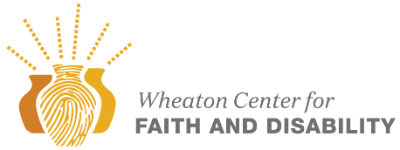Dimensions of Belonging
.png)
In 2016, we began studying what helps people feel like they belong in community, particularly for individuals and families impacted by disability. Being part of a community is vital to the thriving of any person, whether or not they have a disability.
Our research identified ten dimensions of belonging that reflect a trajectory of deepening relationship that includes being:
|
1. Present |
6. Supported |
|
2. Invited |
7. Heard |
|
3. Welcomed |
8. Befriended |
|
4. Known |
9. Needed |
|
5. Accepted |
10. Loved |
In the years since we identified those 10 dimensions, our research has been used in a variety of school-based and congregation-based applications. We have since developed those 10 dimensions into five steps to relationships where everyone can flourish and thrive.
- Choosing
Healthy relationships must be built by choice; they cannot be forced or mandated. The first step toward belonging is simply when a person with disability is present at an event or in a community. However, true belonging goes beyond mere presence–it begins when that person is intentionally invited to be present and participate. An invitation extends hospitality and fosters a deeper sense of connection and inclusion. When two or more people willingly choose to engage in a relationship, a healthy seed is planted. This choice creates space for authentic, mutual relationships to grow and thrive, building the foundation for genuine belonging. - Investing
Once individuals have chosen to be in a relationship, they must invest time and energy to help it grow. When a person with disability is intentionally welcomed into a space or community, this act of hospitality nurtures the relationship. Welcoming someone affirms their dignity and value, paving the way for them to be truly known and appreciated. Just as sunlight and water are essential to a budding plant, intentional welcoming and reciprocal knowing are crucial to healthy relationships. As people actively engage and invest in the connections, the relationship can grow in beautiful, life-giving ways. - Yielding
People often fear that if they were truly known, they would be rejected. However, when someone is deeply known and still accepted, the relationship is able to grow and deepen. By sensitively yielding in response to the needs of another person–and to the promptings of the Holy Spirit–our words and actions can create a powerful sense of someone feeling supported. Acceptance and support are the nutrients that sustain a healthy relationship and allow it to grow. As these elements nurture the bond, the relationship reaches what can be described as relational depth–a profound sense of connection rooted in trust and mutual care. - Committing
When people commit to a relationship, trust naturally builds, and appropriate relational intimacy grows. For example, individuals tend to share personal thoughts and experiences with a trusted few–things they might not share with casual acquaintances. In moments of deep sharing, it is crucial that the person feels seen, heard, and valued. As relational depth takes root, true friendship emerges. Being befriended is a fundamental human need, contributing to a sense of belonging for most people. In relationships involving people with disabilities, a deepening connection both requires–and in turn fosters–a sense of safety and mutual respect. For relationships to thrive, individuals need to feel–and actually be–safe and secure. - Flourishing
Individuals with disabilities don’t simply have needs to be met; they also possess unique gifts and talents to share. True flourishing within a community happens when these gifts are not only shared but also received by others in meaningful and valued ways. You know you are truly needed when your absence is felt, and your contributions are missed. The greatest commandments, along with the 13th chapter of 1st Corinthians, elevate and honor love as supreme. The goal of becoming a community of belonging is to embody and express love–for the glory of God and the good of all people. When people are loved well, the law of Christ is fulfilled. Deep and meaningful relationships within such a community produce transformation, growth, peace, and wholeness. These outcomes are the hallmarks of a true community of belonging, where every person is valued, and love prevails.
Efforts to foster belonging must not be automatically presumed but must be intentionally pursued. This is true for everyone but even more so for the flourishing of people with disabilities. The presence and participation of people with disabilities is vital to the thriving of any community.
Some key articles and resources
- Being present versus having a presence: Dimensions of belonging for young people with disabilities and their families (Christian Education Journal)
- A place of belonging: Research at the intersection of faith and disability (Review & Expositor)
- Creating communities of belonging for students with significant cognitive disabilities (TIES Center)
- A place of belonging: Including individuals with significant disabilities in faith communities (Inclusive Practices)
- Five Steps to Relationships of Belonging and Flourishing (Sesame Street)
Disability Foundations
|
Theology of Disability |
Dimensions of Belonging |
Stages of Attitudes |



